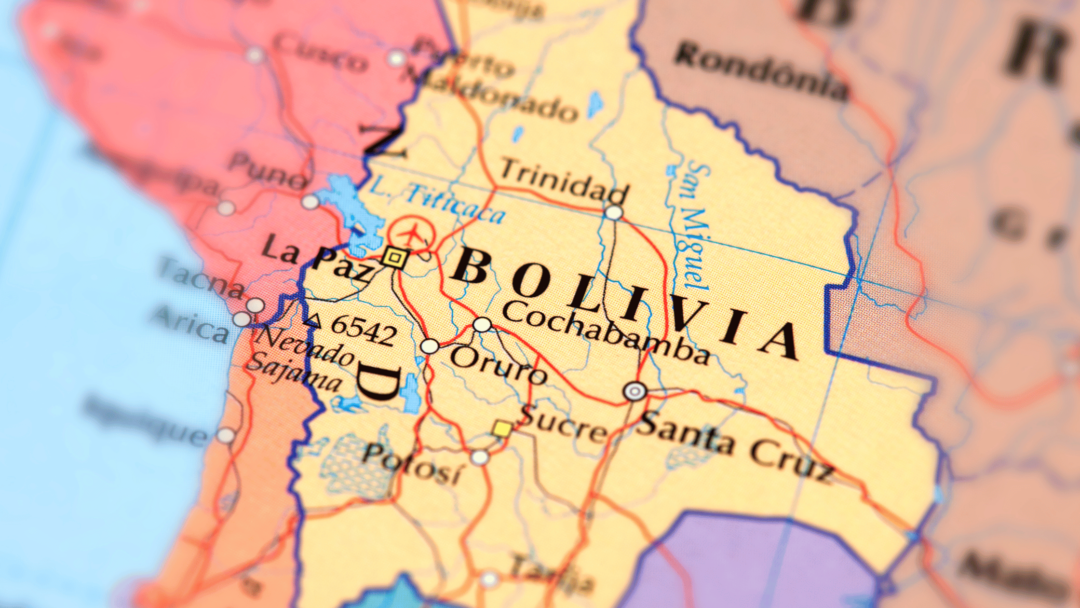Indonesia offers a fascinating array of hobbies that are deeply intertwined with its rich culture and diverse traditions. From the invigorating experience of traveling across its varied landscape to the serene pleasure of reading, you will find activities that suit different tastes and lifestyles.
Traveling tops the list as a favorite pastime among Indonesians, offering you the chance to explore the country’s stunning islands and vibrant cities.

Diving into traditional hobbies, you will encounter unique cultural practices that have been passed down through generations.
For instance, engaging in traditional dance not only helps you stay fit but also connects you with Indonesia’s rich cultural heritage.
Indulging in traditional crafts like batik-making provides a hands-on way to appreciate the intricate art forms Indonesia is famous for.
Modern hobbies are equally popular. Many Indonesians enjoy spending their time reading, a simple yet rewarding activity that allows you to immerse yourself in the vast world of literature.
Whether you are a traveler, an art enthusiast, or simply someone looking for a new hobby, exploring these activities will enrich your understanding of Indonesia’s cultural landscape.
The Cultural Fabric of Indonesia

Indonesia’s cultural tapestry is rich and varied, reflecting its diverse heritage. You’ll find intricate traditions, vibrant religious practices, and a plethora of languages and literary works that showcase the unique identity of this nation.
Ethnic Groups and Traditions
Indonesia is home to over 300 ethnic groups, including Javanese, Sundanese, and Balinese. Each group brings its own traditions and customs.
For instance, the Toraja people in Sulawesi are known for their elaborate funeral ceremonies, while the Balinese are famous for their traditional dance performances.
Traditions like shadow puppet theaters (wayang kulit) and batik fabric originate from the Javanese culture.
Batik, recognized by UNESCO as an Intangible Cultural Heritage, is not just a textile but a canvas depicting history and identity. These ethnic practices contribute to the vibrant Indonesian culture.
Religion and Festivities
Indonesia has the largest Muslim population in the world, yet it also practices Hinduism, Buddhism, and Christianity. This religious diversity leads to numerous festive celebrations.
For example, Ramadan is widely observed with fasting, prayer, and communal gatherings. In Bali, Nyepi, the Hindu Day of Silence, is marked by a day of meditation and fasting.
Another notable festival is Vesak, celebrated by Buddhists at the Borobudur temple. Christianity brings Christmas and Easter celebrations to various Indonesian communities. This blend of religious practices results in a colorful array of festivities throughout the year.
Language and Literature
Indonesia boasts more than 700 languages, with Bahasa Indonesia serving as the official language. Each region maintains its own dialects and languages, preserving local identities.
This linguistic diversity enhances the nation’s cultural richness.
In literature, you’ll find influential works from authors like Pramoedya Ananta Toer, whose novels delve into Indonesian history and social issues.
Poetry and traditional folktales also play a crucial role.
Oral traditions, like those from the ethnic group Nias, keep storytelling alive and vibrant, reflecting the values and wisdom of Indonesian culture.
Historical Context of Indonesian Hobbies

Indonesian hobbies are deeply rooted in the country’s rich history and evolving artistic traditions. From colonial influences to indigenous practices, these hobbies reflect a tapestry of cultural interactions and historical developments.
Influence of Colonial and Indigenous History
Indonesia’s hobbies have been significantly shaped by both colonial and indigenous histories. The Borobudur and Prambanan temples are historical landmarks that illustrate the early cultural development influenced by Buddhist and Hindu civilizations.
These sites draw locals and tourists alike, fostering a hobby of historical exploration and study.
Colonial influence, particularly from the Dutch, introduced new hobbies and activities.
Traditional practices such as batik textile making continue to thrive, blending indigenous methods with colonial techniques.
Activities around textiles have evolved into widespread hobbies like fabric dyeing and pattern design, preserving the historical essence while adapting to modern tastes.
Evolution of Art and Music
Art and music have always been integral to Indonesian culture, often reflecting historical changes. The archipelago’s diverse ethnic groups contribute to a rich artistic heritage.
Traditional arts have evolved, drawing from a variety of sources such as Indonesian Art and foreign influences.
This evolution is seen in contemporary paintings, sculptures, and performance arts.
Traditional music, influenced by Indian, Arabic, and Chinese sounds, has developed into unique genres like gamelan and dangdut.
Gamelan, an ensemble of percussive instruments, is central to many cultural rituals and festivities, becoming a cherished hobby for many Indonesians.
Similarly, modern Indonesian music blends traditional rhythms with contemporary styles, engaging new generations and keeping the musical tradition alive.
Crafts and Traditional Arts

Indonesia’s rich cultural heritage is evident in its diverse crafts and traditional arts. From intricate textile creations to detailed bamboo weaving and wooden carvings, these crafts offer a glimpse into the nation’s history and artistic skills.
Textiles and Batik Making
Indonesian textiles, especially batik, are renowned worldwide for their detailed patterns and vibrant colors.
Batik-making involves applying wax to fabric in intricate designs and then dyeing the fabric. Once the dyeing process is complete, the wax is removed, revealing stunning patterns.
Regions like Yogyakarta and Solo are famous for their unique batik styles. You can find both hand-drawn (batik tulis) and stamped (batik cap) varieties.
Mastering batik making requires patience and precision, but it is an art form you can begin exploring with basic tools and fabrics.
Pottery and Wood Carving
Pottery and wood carving are vital aspects of Indonesian crafts.
The town of Jepara, in particular, is well-known for its exquisite wood carvings that often depict stories from Hindu epics or daily life.
Jepara wood carvings are typically made from teak wood, known for its durability and beauty.
Pottery in Indonesia ranges from everyday items to intricate ceremonial pieces. Regions like Lombok and Java specialize in pottery, each with distinct styles and methods.
Learning these crafts provides insight into the cultural importance and utility of these artistic expressions.
Weaving Techniques and Basketry
Weaving techniques in Indonesia utilize various materials such as bamboo, rattan, and pandan leaves.
Basket weaving is especially prominent, with bamboo weaving and rattan baskets being highly sought after for their durability and aesthetic appeal.
Communities in Bali and Kalimantan are famous for their weaving skills, creating items that range from functional baskets to elaborate mats.
Weaving requires practice and attention to detail but offers a rewarding way to connect with Indonesian culture.
Performative Arts and Sports

Indonesia holds a rich tradition of both performative arts, such as traditional dance and drama, and modern sports like soccer and badminton. These aspects of Indonesian culture deeply reflect the country’s history and contemporary interests.
Dance and Dramatic Arts
Traditional dance and dramatic arts play a significant role in Indonesian cultural heritage. The archipelago boasts diverse styles, from the intricate movements of Balinese dance to the expressive storytelling in Javanese wayang kulit (shadow puppetry).
Pencak Silat, a traditional martial art, seamlessly integrates dance and fighting techniques, showcasing agility and grace. It is often performed during cultural festivals and ceremonies.
Ramayana Ballet, performed regularly at the Prambanan Temple, combines drama and dance to depict epic tales from Hindu mythology. These art forms not only entertain but also pass on historical and moral lessons to younger generations.
Modern Sports and National Favorites
Soccer and badminton are prominent in modern Indonesian sports culture.
Soccer, particularly the Liga 1 league, captivates millions of fans across the country.
Influential players like Bambang Pamungkas have become national icons. Matches are widely watched and discussed, reflecting soccer’s status as a unifying force.
Badminton is another sport where Indonesia excels globally. The country has produced numerous world champions and Olympic medalists.
The enthusiasm for badminton is palpable, with local tournaments drawing large audiences.
Additionally, while not as dominant, basketball has a growing presence, partly due to the influence of international leagues like the NBA.
Indonesian players and fans are increasingly engaging with the sport, driven by accessible media coverage and community programs.
Leisure and Modern Pastimes

In Indonesia, leisure activities have evolved significantly, blending traditional interests with modern entertainment. Digital gaming, film, music, and outdoor fitness are some of the most popular pastimes amongst Indonesians today.
Digital and Video Gaming
Gaming has rapidly gained popularity in Indonesia, driven by advancements in technology and internet accessibility. The gaming industry offers a wide variety of choices, from mobile games to console and PC gaming.
Competitive gaming, or eSports, has also become a significant trend. Platforms like Garena and Steam are widely used.
Popular titles include Dota 2, Mobile Legends, and PUBG. Digital entertainment has made gaming a communal event, with many participating in online multiplayer games.
Music and Film Entertainment
Music and film are integral to Indonesian leisure. The rise of streaming services like Spotify and YouTube has made it easier to access a vast array of music genres.
From traditional gamelan to modern pop and rock, music is a key part of daily life.
The local film industry also thrives, with Indonesian cinema gaining recognition globally.
Movies such as “The Raid” have showcased local talent. Additionally, international films are widely watched, making cinemas a favorite hangout spot.
Outdoor and Fitness Activities
Outdoor activities in Indonesia range from hiking in lush landscapes to practicing yoga and fitness routines in urban parks.
Hiking destinations like Mount Bromo attract both locals and tourists. Gardening is another popular hobby, with many Indonesians growing their own herbs and flowers.
Fitness culture is growing, with more people joining gyms and participating in group activities like Zumba and aerobics.
Yoga has also become popular, offering a tranquil way to stay fit. Parks and beaches provide excellent spaces for these activities, promoting a healthy lifestyle.
Mindful and Spiritual Practices

In Indonesia, mindful and spiritual practices are deeply woven into daily life, fostering mental clarity and inner peace. These activities include yoga, meditation, and tea ceremonies, reflecting the rich traditions and cultural heritage of the country.
Yoga and Meditation
Yoga and meditation are integral parts of many Indonesians’ lives. Bali, in particular, is famous for its yoga retreats and meditation centers. Engaging in these practices helps promote mental clarity and spiritual well-being.
Bali offers several retreats where you can immerse yourself in yoga sessions along with guided meditations. These practices encourage discipline and mindfulness, allowing you to connect with your inner self amid the island’s stunning natural landscapes.
Whether you are a beginner or an experienced practitioner, numerous classes and workshops cater to all levels, ensuring a fulfilling experience. Practicing yoga and meditation in Indonesia allows you to benefit from centuries-old techniques set against unique cultural backdrops.
Tea Ceremonies and Traditional Culinary Skills
Tea ceremonies and traditional culinary skills highlight Indonesia’s rich cultural practices. These activities are not only about enjoying a beverage or meal but also about engaging in a mindful experience.
In various regions, you can participate in tea ceremonies that emphasize mindfulness and tradition. These ceremonies involve a set of meticulous steps that promote mental discipline and attentiveness. Tea rooms are often serene settings, enhancing the spiritual experience.
Additionally, learning traditional culinary skills, such as preparing age-old recipes and using local ingredients, connects you deeply with Indonesian culture. Cooking classes often incorporate elements of mindfulness, teaching you to focus on the process and savor the moment. These practices enrich your cultural appreciation and contribute to a holistic lifestyle.
Community and Tourist Interactions

Indonesia offers a unique blend of hospitality and respect that allows tourists to bond with local communities. There are numerous ways to engage with the culture, from participating in festivals to exploring museums.
Festivals and Public Venues
Festivals in Indonesia are vibrant venues for community and tourist interactions. Key events like the Bali Arts Festival in Ubud showcase traditional performances, crafts, and dances. Tourists can witness and partake in these events, fostering mutual respect and understanding.
Public gatherings at places like Borobudur allow for cultural exchanges. This UNESCO World Heritage Site is not just an architectural marvel but also a focal point for spiritual gatherings. Travelers can interact with locals during these events, enhancing their cultural knowledge and bonding experience.
Museums and Expatriate Hobbies
Museums such as the National Museum in Jakarta offer deep dives into Indonesian history and heritage. Exhibits cover everything from ancient artifacts to contemporary art, making it a must-visit venue for both tourists and the expatriate community.
The Indonesian Heritage Society often collaborates with museums on projects aimed at preserving and promoting Indonesian culture. Expats and tourists can join workshops and guided tours led by knowledgeable locals or expatriates who share a passion for Indonesian arts and crafts. This creates a mutual appreciation for the country’s rich history and traditions.
Frequently Asked Questions

This section answers key questions about the most popular hobbies in Indonesia, highlighting how cultural activities, history, and local values shape leisure pursuits.
What are traditional Indonesian cultural activities that are popular hobbies today?
Traditional activities like Batik making and Gamelan music continue to be popular. You can see these skills in action in many communities across Indonesia.
How has history shaped the hobbies and pastimes of Indonesia?
Indonesia’s diverse history, including Hindu-Buddhist empires and Islamic sultanates, influences many current pastimes. For example, the ancient art of wayang kulit shadow puppetry continues to captivate audiences.
What unique aspects of Indonesian culture influence local leisure pursuits?
Local leisure activities are often influenced by a blend of indigenous traditions and external influences. Festivals, traditional dances, and rituals reflect the country’s rich tapestry of cultures.
Which hobbies are integral to understanding Indonesia’s cultural heritage?
Participating in activities like traditional dance, wayang performances, and visiting historical sites such as Borobudur Temple can provide deeper insights into Indonesia’s cultural heritage.
What are some accessible ways to begin exploring Indonesian cultural hobbies?
Visitors can join workshops for Batik making, or take classes in traditional dance and music. Many cultural centers offer programs designed for beginners.
How do modern hobbies in Indonesia reflect the country’s diverse beliefs and values?
Modern hobbies such as traveling and reading have gained popularity. Indonesian leisure activities often balance contemporary trends with age-old traditions.
These hobbies highlight the country’s diverse belief systems and values. For instance, the popularity of nature tours in places like Bali reflects a respect for the environment rooted in local culture.





